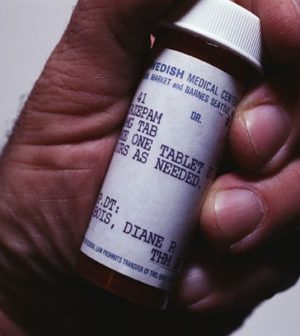- Could Your Grocery Store Meat Be Causing Recurring UTIs?
- Are You Making This Expensive Thermostat Error This Winter?
- Recognizing the Signs of Hypothyroidism
- 10 Strategies to Overcome Insomnia
- Could Artificial Sweeteners Be Aging the Brain Faster?
- Techniques for Soothing Your Nervous System
- Does the Water in Your House Smell Funny? Here’s Why
- Can a Daily Dose of Apple Cider Vinegar Actually Aid Weight Loss?
- 6 Health Beverages That Can Actually Spike Your Blood Sugar
- Treatment Options for Social Anxiety Disorder
Are Generics as Good as Brand-Name Drugs?

Generics make up 80 percent of drug prescriptions filled in the United States and are a big cost savings for consumers.
The U.S. Food and Drug Administration mandates that they perform the same way and are as safe and effective as brand-name drugs. However, makers of generics don’t have to repeat the clinical trials done on the originals.
To be approved by the FDA, a generic must show “bioequivalence” — there can’t be a significant difference from the brand in the rate and amount of absorption of the drug when given in the same dose under similar experimental conditions.
Here are the FDA’s generic drug rules:
- The drug must contain the same active ingredients as the brand-name drug.
- The drug must be identical in strength, dosage, form and route of administration.
- It must be absorbed into the bloodstream at a similar rate and over the same period of time.
- It must be manufactured under the same strict standards of brand-name drugs.
- The drug must meet the same requirements for identity, strength, purity and quality.
Though rare, sometimes a generic fails to perform like the brand. In 2012 some patients didn’t get the same results from generics of a common antidepressant and had new or worse side effects. Testing ultimately found they were not bioequivalent to the brand. Soon after, to increase safety, the FDA began a $20 million program for widespread testing of generics made here and in other countries that sell here, notably India.
In January 2016, a study on the value of generics concluded that, by and large, there are no significant differences in outcomes between generics and brands.
Some physicians simply prefer to prescribe newer medications, which can be very expensive, even when an older generic has been shown to work. That can mean more out-of-pocket costs for you. And that can be a problem because when a drug is more affordable, patients are more likely to stick to their treatment plan. So, if you’re on brand-name medications and cost is an issue, talk to your doctor about alternatives.
The FDA has also made it easier to monitor the safety of available drugs — generic and brand — through the MedWatch page on its website.
More information
The FDA’s consumer page will help you understand more about generic drugs, and it includes a link to MedWatch.
Source: HealthDay
Copyright © 2026 HealthDay. All rights reserved.










